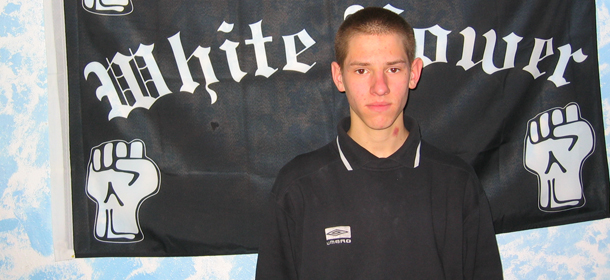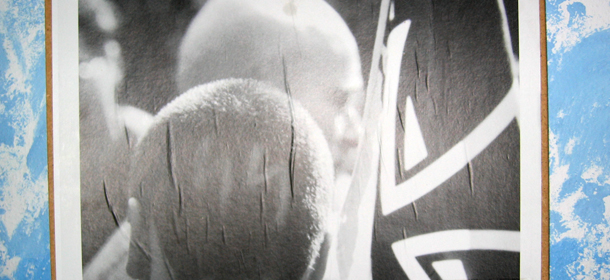The Enemy Among Us
When A Child Becomes a Nazi
Marches organized by radical rightwing groups in Dresden and Munich. Discussions about intensified laws on public assembly designed to prevent demonstrations by neo-Nazis at the Brandenburg Gate. Sixty years after the close of World War II, and on the occasion of recent commemorative events, including the inauguration of the Berlin Memorial, the question has flared up again: How should this nation deal with neo-Nazism? But what happens when right-wing extremist thinking reaches into the family? What does it mean for parents when their own children drift into the scene, for fathers and mothers to endure losing all influence over them? When discussion no longer does any good, when a teenaged son comes home with a shaved head, forcing his parents to ask themselves how he could be interested in the scene, what he is looking for there, and what and they are unable to give him? What are the destructive effects on families of these personality changes in young people, with aggression and stupefaction increasingly dominating everyday life? This film follows two families, one just beginning to deal with the problem, the other at the end of a long coping process. Robin, now 15, has always brawled with Turkish kids. At some point, he starts listening to rightwing music. “They sing about the things that bother me. In this country, everything is going downhill, and it’s all the fault of foreigners.† Robin is echoing what he hears from his buddies in the rightwing scene. His mother watches as he becomes increasingly withdrawn, barricading himself in his room and refusing to have anything to do with her. This distressing situation continues until Robin left his mother and brother to enter a home for troubled youths. To grasp the incomprehensible, to overcome the shock of realizing that your own child is harassing foreigners and Jews: these experiences are also familiar to another family. For five years, her son was deeply enmeshed in the scene, five years of constant fear and helplessness which left the family totally exhausted. Thanks to “Exit,† a program for individuals who want to leave the scene, David was able to get out. Yet even now, he suffers the aftereffects of those years. He must come to terms with having spent his puberty at meetings with buddies and in conflicts with state security instead of enjoying falling in love for the first time. Even now, many questions remains unresolved, and even with the benefit of hindsight, David has no answers.



